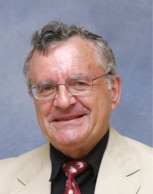How NOT to Choke!
By Shlomo Maital

Like many kids, I had dreams of being an athlete. I used to rise early and spend hours on the tennis court practicing serves. But I never got to even ‘mediocre’. And I know why. I choked. “Choke” is performing way below your ability, because of self-doubt, tension, stress, worry, distraction…. And we see it on TV every day. I choked, because as a son of immigrant parents, I was driven by high aspiration – and that meant constant worry over failing, losing, not performing well. And that led to ‘choke’.
If only I could have read Sian Beilock’s new book 65 years ago. Beilock is a cognitive psychologist, President of Barnard College, and recently was interviewed by Shankar Vedantem on the Hidden Brain podcast. The ‘choke’ topic also was featured in Stepen Dubner’s Freakonomics Radio podcast. And behavioral economist Uri Gneezy has done pathbreaking research on ‘choking’ in India. […’ the findings were striking. You see reduction in success rates across the board. All six games that we played (in India) results in lower success rates [ often, a whole LOT lower!] when the incentives were really high.’].
Beilock explains that we have “working memory”, memory, for instance, that NFL quarterbacks use to place a forward pass precisely where the receiver will be, with outstretched arms… Having done this so many times in practice, the brain and muscles remember how – and if Tom Brady thought about it, he would probably underthrow or overthrow by a wide margin…and anyway there is no time to think about it, you have maybe 3-4 seconds to fire. We ‘choke’ when we interfere with working memory, and overthink it. I have done this so many times….
There is also procedural memory. Driving is a procedure. We do it pretty much automatically – because we do it so often, so much. But what if we are also driving and talking on our cell phones? Some of that procedural memory of our brains is being taken up by ‘cell phone memory’ or cell phone cognition — and the distraction that results has cost many lives all over the world.
Math anxiety is a great example. Beilock explains very simply: people (especially young girls and young women) do poorly in math — they are anxious about math NOT because they are poor in math — they are poor in math BECAUSE they are anxious. Reduce the anxiety, with a variety of tricks – and you improve greatly.
High achieving people may tense up before a performance test. If only I had known this key principle: Hey, relax! Think about something else. Beilock listens to a favorite song, in her head, by The Eagles, before a big presentation. Let your body do its thing… you’ve practiced, you’ve worked hard — just let it roll. I used to have trouble catching a ball – because my hands would tense up, before it arrived, because I was afraid I would drop it. Solution: SOFT HANDS! Relax. Let your brain do its thing. HARD HANDS drop the ball. SOFT hands envelop it.
Beilock’s book got some critical reviews. But one review stands out – on Amazon. An airline pilot, who is tested in simulators every six months, with impending-crash situations, high stress, high anxiety, and his future depends on performing well. Before reading the book, he talks about the ‘fog’ in his brain – his brain is worrying about other things, rather than the task at hand. Now, with the tips in the book, he says he “can continue to develop my brain to ensure a free and focused thinking and reasoning when presented with complex failures.”


Leave a comment
Comments feed for this article